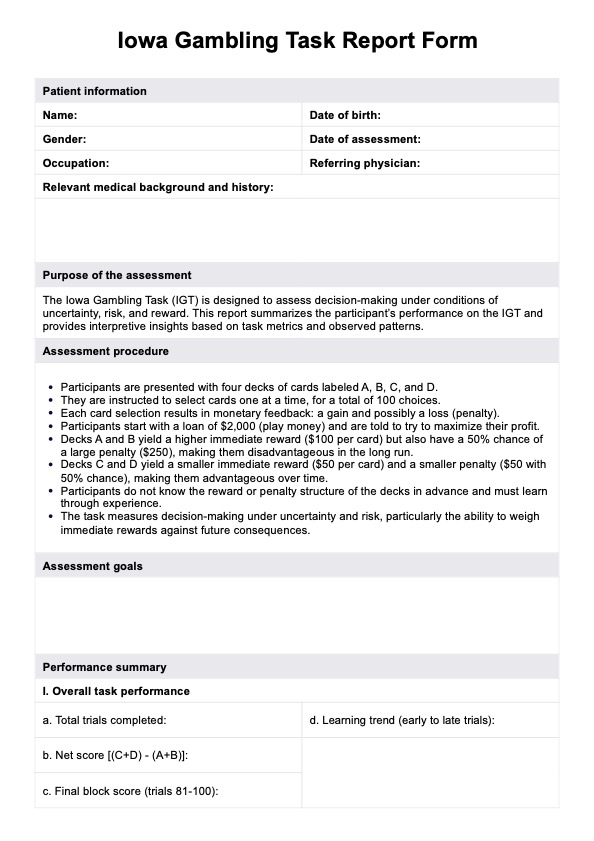Participants are presented with four decks of cards and instructed to select cards from each deck. The decks offer different probabilities of winning and losing money, and participants must learn through trial and error which decks are more advantageous over time.

Iowa Gambling Tasks
Evaluate your decision-making and risk-assessment abilities with the Iowa Gambling Task (IGT). Download a free PDF here and start your journey.
Iowa Gambling Tasks Template
Commonly asked questions
The Iowa Gambling Task measures various aspects of decision-making, including risk assessment, reward processing, and feedback utilization impaired performance. It provides insights into an individual's ability to weigh risks and rewards and adapt strategies in uncertain environments.
The Iowa Gambling Task benefits researchers studying decision-making processes, clinicians assessing cognitive functioning in patients with neurological or psychiatric conditions, educators teaching about risk assessment and decision-making, and individuals seeking to have gambling disorder improve their decision-making skills.
EHR and practice management software
Get started for free
*No credit card required
Free
$0/usd
Unlimited clients
Telehealth
1GB of storage
Client portal text
Automated billing and online payments











